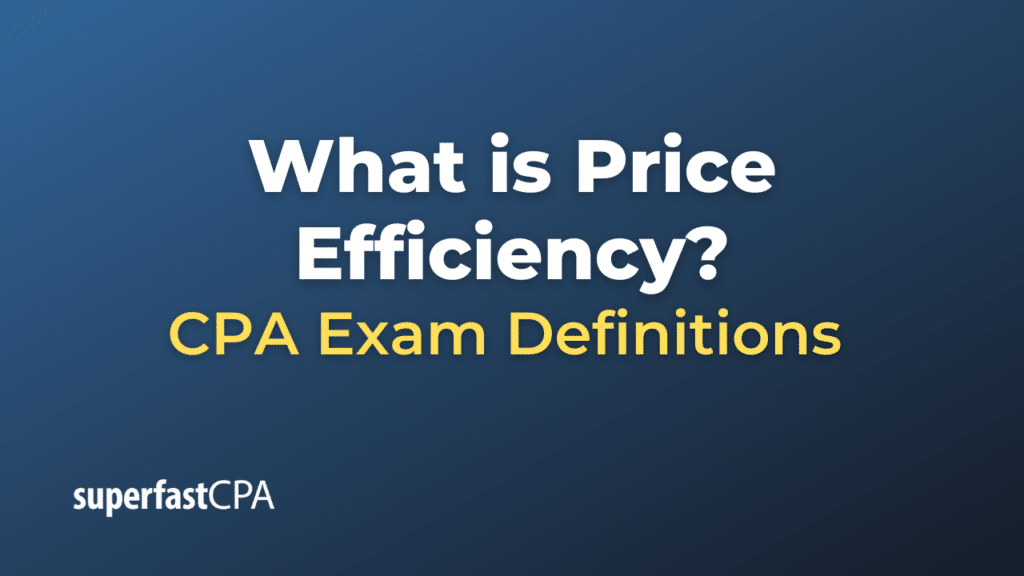Price Efficiency
Price efficiency, or market efficiency, is a concept from financial economics that refers to a situation in which asset prices reflect all available information. This theory is often associated with the Efficient Market Hypothesis (EMH), introduced by economist Eugene Fama in the 1960s.
The EMH posits that financial markets are “informationally efficient,” and thus it is impossible to consistently achieve returns in excess of average market returns on a risk-adjusted basis, given the information available at the time the investment is made.
The EMH is generally presented in three forms:
- Weak form efficiency: This form asserts that all past prices of a stock are reflected in today’s stock price. Therefore, technical analysis methods cannot be used to predict and beat the market.
- Semi-strong form efficiency: This form asserts that all publicly available information is incorporated into a stock’s current price. Therefore, neither technical nor fundamental analysis can be used to achieve superior gains.
- Strong form efficiency: This form asserts that all information, public and private, is accounted for in a stock’s current price. Not even insider information could give an investor an advantage.
It’s important to note that while the EMH provides a useful model for thinking about financial markets, it’s not without controversy or criticism. For example, behavioral economists have identified numerous cognitive biases that can lead investors to behave irrationally, which can result in market inefficiencies.
Moreover, empirical evidence shows that markets are not entirely efficient. For instance, there can be mispricing and bubbles, as seen with the dot-com bubble in the late 1990s and the housing bubble in the mid-2000s. Despite this, the EMH remains a central theory in the study of finance and economics.
Example of Price Efficiency
Let’s take an example to illustrate market efficiency, using the semi-strong form of the Efficient Market Hypothesis (EMH).
Suppose you’re an investor considering investing in a technology company, let’s call it TechCo. You hear a news report that TechCo just received a patent for a revolutionary new product that could significantly increase their future earnings.
According to the semi-strong form of EMH, by the time you hear this news, TechCo’s stock price should have already adjusted to incorporate this new information. That is, as soon as the patent news was released publicly, investors would have bought up shares of TechCo, driving up the price to a new equilibrium level that reflects the anticipated increase in future earnings.
Therefore, if the market is semi-strong efficient, you wouldn’t be able to buy shares of TechCo at the old, lower price. Furthermore, you wouldn’t expect to earn an above-average return by buying the stock at the new, higher price, because that price already reflects all publicly available information — including the news of the patent.
This is a simplified example, but it illustrates the idea of market efficiency. In reality, many factors can cause prices to deviate from the “true” value implied by available information, including transaction costs, investor irrationality, and limitations on arbitrage. Therefore, while the EMH is a useful model in finance, it’s not an absolute law and should not be the only principle guiding investment decisions.













